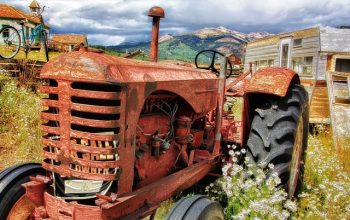Choosing the right fencing wire for agricultural purposes is vital, with options differing in strength and purpose. Fence Right Inc offers a comprehensive range of fencing solutions, guiding farmers on factors like tensile strength, flexibility, corrosion resistance, and installation ease to match their specific needs—whether containing smaller livestock or protecting crops from larger animals. The company ensures informed decisions through detailed information on each farm wire type, emphasizing rigorous testing for optimal performance, safe installation practices, and regular maintenance to foster durable and secure farming environments.
Looking to secure your farm with durable fencing? Choosing the right fencing farm wire is essential. This comprehensive guide by Fence Right Inc delves into the various types and strengths available, helping you navigate the options. From understanding key classifications to testing performance and best installation practices, we equip you to select the optimal fence for farms. Discover how different wire types fortify your agricultural boundaries effectively.
- Understanding Fencing Farm Wire Types: A Comprehensive Overview
- Factors to Consider When Choosing the Right Fence Wire Strength for Farms
- Performance Differences: Testing and Evaluating Farm Fence Wire Strengths
- Best Practices for Installing Fencing Farm Wire Based on Type and Strength
Understanding Fencing Farm Wire Types: A Comprehensive Overview
Fencing farm wire comes in various types and strengths, each suited to different applications on farms. Understanding these differences is crucial when selecting the right fence for your agricultural needs. Fence Right Inc offers a comprehensive range of fencing solutions, catering specifically to the unique demands of farming operations.
When considering fencing for farms, it’s important to look beyond just price. The type of wire used significantly impacts the longevity and effectiveness of the fence. Factors like tensile strength, flexibility, corrosion resistance, and ease of installation play a vital role in keeping livestock contained and protecting crops from stray animals. Fence Right Inc provides detailed information on each farm wire type, helping farmers make informed decisions based on their specific requirements.
Factors to Consider When Choosing the Right Fence Wire Strength for Farms
When selecting fencing wire for farm use, several key factors come into play to ensure the best fit and longevity. One of the primary considerations is the specific purpose and size of your farm. Different animals require varying levels of containment, so understanding the needs of your livestock is essential. For example, smaller sheep or goats may require a lighter gauge wire, while larger cattle necessitate stronger, heavier-duty options.
Another crucial aspect is the environment in which the fence will be installed. Will it be exposed to harsh weather conditions, such as constant wind or heavy rain? In such cases, corrosion-resistant wires made from materials like stainless steel or galvanized steel are ideal for maintaining structural integrity over time. Additionally, considering the ease of installation and maintenance is vital, with options available that offer superior strength while also being easier to work with during fencing construction. Fence Right Inc offers a range of fencing farm wire types designed to cater to these diverse needs, ensuring farmers can select the perfect fit for their unique requirements.
Performance Differences: Testing and Evaluating Farm Fence Wire Strengths
When comparing fencing farm wire types and strengths, understanding performance differences is key. Companies like Fence Right Inc offer a range of options designed for various applications on farms. Each type undergoes rigorous testing to evaluate its strength, durability, and resistance to environmental factors. These tests simulate real-world scenarios, ensuring farmers choose the right fence for their specific needs.
Evaluating farm fence wire strengths involves assessing tension ratings, which indicate how much weight the wire can support before failing. Different wires have varying levels of tensile strength, affecting their longevity and effectiveness in containing livestock or protecting crops. By understanding these performance differences, farmers can select fencing materials that offer optimal strength and reliability for their operations, ensuring a secure and efficient farm environment.
Best Practices for Installing Fencing Farm Wire Based on Type and Strength
When installing fencing for farms using farm wire, adhering to best practices is essential to ensure durability and safety. For lighter-gauge wires, often used for temporary or lightweight fences, proper positioning and tensioning are key. These wires should be stretched taut along the fence posts, securing them with tight knots or specialized clips. Regular checking for loose or damaged wires is crucial during installation to maintain the fence’s integrity.
For stronger farm wire types, offered by companies like Fence Right Inc, a slightly different approach is necessary. Given their higher strength and durability, these wires can support heavier loads and are ideal for more permanent fences. Installation involves securely fastening the wires to posts with robust brackets or straping. It’s recommended to follow manufacturer guidelines regarding tensioning and spacing to maximize the fence’s structural integrity. Regular maintenance includes inspecting for rust, corrosion, or signs of wear, promptly replacing any compromised sections to maintain the farm’s safety and security.
When selecting fencing for farms, understanding the diverse farm wire types and their corresponding strengths is paramount. By considering factors like intended use, environmental conditions, and budget, farmers can make informed choices that ensure robust and long-lasting fences. Testing has demonstrated significant performance differences among farm fence wires, underscoring the importance of aligning material strength with specific farm needs. Adhering to best practices for installation, as outlined by Fence Right Inc, further enhances the durability and effectiveness of fencing for farms, contributing to successful livestock management and property protection.




